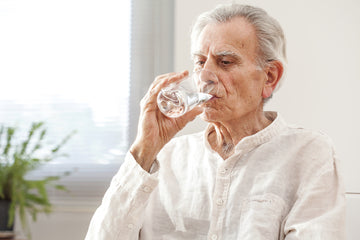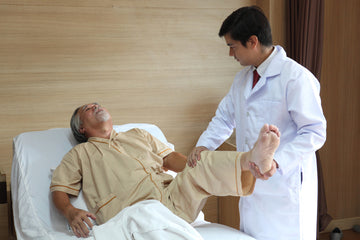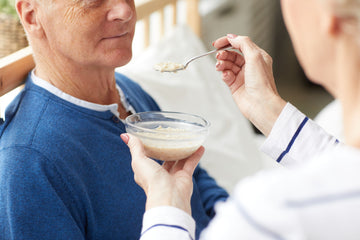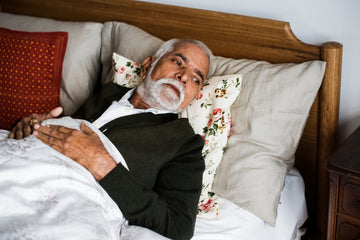
As we age, our bodies undergo various changes, making us more susceptible to certain health issues. For elderly individuals who find themselves bedridden due to illness, injury, or other reasons, there are specific complications that caregivers need to be aware of. In this blog, we'll delve into five common complications that bedridden patients may face and discuss preventive measures, including the use of bed sore gel, to ensure their comfort and well-being.
Bedsores (Pressure Ulcers): Bedsores, also known as pressure ulcers, are one of the most prevalent complications in bedridden patients. These painful wounds develop when there is prolonged pressure on the skin, typically in areas where bones are close to the skin surface, such as the hips, heels, and tailbone. To prevent bedsores, caregivers should regularly reposition the patient, provide supportive cushions or mattresses, and use specialized skincare products like bed sore gel to reduce friction and protect vulnerable areas.
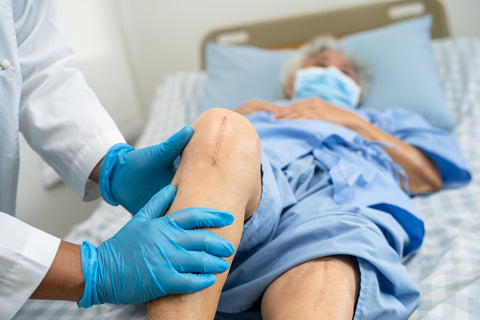
Muscle Atrophy and Weakness: Extended periods of immobility can lead to muscle atrophy and weakness in bedridden patients. Without regular movement and exercise, muscles begin to deteriorate, resulting in reduced strength and mobility. Caregivers should incorporate gentle range-of-motion exercises and physical therapy into the patient's daily routine to help maintain muscle strength and prevent further deterioration.
Respiratory Issues: Bedridden individuals are at an increased risk of developing respiratory complications, such as pneumonia and atelectasis, due to shallow breathing and reduced lung function. Proper positioning, frequent turning, and deep breathing exercises can help prevent respiratory problems. Additionally, maintaining a clean and well-ventilated environment can minimize the risk of respiratory infections.
Urinary Tract Infections (UTIs) and Constipation: Immobility can disrupt normal bodily functions, leading to urinary tract infections and constipation in bedridden patients. Limited mobility may cause urinary retention or difficulty emptying the bladder, increasing the risk of UTIs. Similarly, inadequate movement can result in constipation and bowel impaction. To prevent these issues, caregivers should encourage adequate fluid intake, provide fiber-rich foods, and assist with toileting as needed.

Psychological and Emotional Challenges: Being confined to bed can take a toll on a person's mental well-being, leading to feelings of isolation, depression, and anxiety. Lack of social interaction, boredom, and dependency on others can exacerbate these psychological challenges. It's crucial for caregivers to provide emotional support, engage the patient in meaningful activities, and maintain open communication to address any concerns or emotional distress.
In addition to understanding these complications, caregivers must prioritize preventive measures to ensure the comfort and overall health of bedridden patients. Regular repositioning, proper skincare, and maintaining good hygiene are essential components of preventative care. Using specialized products such as bed sore gel can provide an added layer of protection against pressure ulcers and skin breakdown.
Preventing bedsores is paramount in caring for bedridden individuals. Bed sore gel, formulated with ingredients like silicone, can create a protective barrier on the skin, reducing friction and minimizing the risk of pressure ulcers. Applying this gel to vulnerable areas, such as bony prominences, can help maintain skin integrity and prevent the development of bedsores.
Caring for bedridden patients requires vigilance, compassion, and a comprehensive understanding of the potential complications they may face. By proactively addressing these issues and implementing preventive measures, caregivers can improve the quality of life for bedridden individuals and promote their overall well-being.





